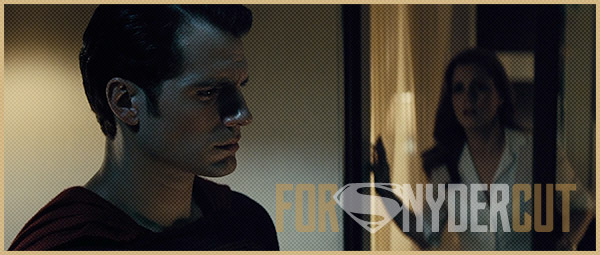
Misunderstood mythology of superheroes by Bea
This profound difference in perceptions was summarized perfectly by one of the critics: “Luthor’s dialog is in fact just one aspect of an incredibly smart script, one likely to go over the heads of most casual fans and critics alike. They’re liable to see Snyder bashing action figures together mindlessly against a grim and gritty backdrop, and in doing so missing the numerous references to mythology, theology, art history, and more, or how such are all in service of a singular thesis, resulting in a superhero film every bit as narratively coherent and philosophically compelling as Nolan’s Dark Knight […..] It is Miltonic in its message and scope, seeking “to justify the ways of God to men,” doing so with drama on a truly epic scale” (Matthew J. Theriault, The Hub City Review).
This opinion seems to be justified and it’s obvious that majority of critics don’t perceive BvS as Miltonic, epic or full of references to mythology, theology, art history etc. Quite the contrary – it’s a “howlingly pretentious”, “self important”, “strenuously empty movie”, and “a series of big things bashing into other big things, which is what Snyder and writers Chris Terrio and David S. Goyer mistake for storytelling” (RT Top Critic Alonso Duralde, The Wrap). The implied reason of this difference can be easily confirmed by the content of the reviews. One of the most prominent critics, an award-nominated professional wrote: “Why, oh why, can’t we just get what we came for? But then, fun isn’t what we’re after when we venture out of the fairly jaunty Marvel Universe and into the relatively irony-free DC Comics one” (Stephanie Zacharek, Time Magazine).
We should ask what they came for. A tongue-in-cheek (because it’s ridiculous) live action cartoon (because it’s for kids) (4) action comedy, designed to fit the “golden standard of superhero movies” and people like it that way (because it’s a popcorn flick) (5)? ”A diverting entertainment might have been made about the rivalry between these two muscle-bound paladins — a bromance or a buddy comedy, an album of duets” (A.O. Scott, New York Times). ”Shouldn’t all this geeky property colliding still at least be entertaining? Shouldn’t it play to the cheap seats instead of wallowing in the murk?” (RT Top Critic A.A. Dowd, AV Club). It seems unacceptable for them that BvS treats its characters seriously, was made as a modern myth with a revenge tragedy structure, shot like a graphic novel, with little humor (even fewer jokes, meticulously), and realistic, gut-punching approach to violence ”rather than escapism and sensory exhilaration” (Ann Hornaday, Washington Post) (6). But the greatest of its sins is that the movie, unlike MCU films, ”forgets to have fun” (7).
These observations made it apparent to me that majority of critics watched BvS with a very specific attitude that shaped their perceptions, applying two main requirements – 1) it must be fun and entertaining (in a very specific sense), and 2) it shouldn’t treat itself seriously (”it takes itself more seriously than a Best Picture Oscar Winner” – Mara Reinstein, US Magazine). This conviction was reinforced by reviews of subsequent MCU movies. It is not my intention to criticize these movies or stir any controversy, but to provide examples of what I consider a serious problem with the attitude to superhero films displayed by the majority of critics. For example (in the review of Doctor Strange): “The key is an in-on-the-joke script […] that ingeniously navigates major plotholes even as it saddles its actors with ludicrous dialogue. But what actors!”(RT Top Critic Peter Debruge, Variety). This attitude is even more evident in the reviews of Thor: Ragnarok. We see: “Thor: Ragnarok thinks superheroes are ridiculous, and that makes it wonderful” (top Metacritic review from The Verge); ”Ragnarok is basically a Joke Delivery System – and on that score, it works. The movie is fun.” (RT Top Critic Chris Nashawaty, Entertainment Weekly); ”Like the antic entertainer at a children’s party, director Taiki Waititi keeps us distracted with sudden noises, bright objects and silly jokes. It’s not a bad plan” (RT Top Critic Stephen Whitty, Newark Star-Ledger); ”Turns down the Shakespearean pretensions, cranks up the humor and delivers what is essentially an action-comedy with swords and capes.” (RT Top Critic Rafer Guzman, Newsday); ”You never have to wait more than five minutes for a joke or a well-placed wisecrack. Anytime there is a danger of someone giving a cliched, worthy speech about power & responsibility there is a one liner delivered like a slap to the back of the head.” (Kevin Harley, Total Film). The same conviction has been expressed recently in the article ”The best superhero stories admit that superheroes are ridiculous” by Noah Berlatsky from The Verge (”Ant Man and the Wasp has plenty of laugh-out-loud moments, including a fight that weaponizes a human-sized Hello Kitty Pez dispenser”). It seems obligatory now for every superhero movie to be a Joke Delivery System, acknowledging its own ridiculousness.
